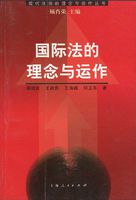Two other comedies without titles, the one in prose, the other in verse, appear among the works of Machiavelli. The former is very short, lively enough, but of no great value. The latter we can scarcely believe to be genuine. Neither its merits nor its defects remind us of the reputed author. It was first printed in 1796, from a manuscript discovered in the celebrated library of the Strozzi. Its genuineness, if we have been rightly informed, is established solely by the comparison of hands. Our suspicions are strengthened by the circumstance, that the same manuscript contained a description of the plague of 1527, which has also, in consequence, been added to the works of Machiavelli. Of this last composition the strongest external evidence would scarcely induce us to believe him guilty. Nothing was ever written more detestable in matter and manner. The narrations, the reflections, the jokes, the lamentations, are all the very worst of their respective kinds, at once trite and affected, threadbare tinsel from the Rag Fairs and Monmouth Streets of literature. A foolish schoolboy might write such a piece, and, after he had written it, think it much finer than the incomparable introduction of the Decameron. But that a shrewd statesman, whose earliest works are characterised by manliness of thought and language, should, at near sixty years of age, descend to such puerility, is utterly inconceivable.
The little novel of Belphegor is pleasantly conceived and pleasantly told. But the extravagance of the satire in some measure injures its effect. Machiavelli was unhappily married; and his wish to avenge his own cause and that of his brethren in misfortune, carried him beyond even the licence of fiction.
Jonson seems to have combined some hints taken from this tale, with others from Boccaccio, in the plot of The Devil is an Ass, a play which, though not the most highly finished of his compositions, is perhaps that which exhibits the strongest proofs of genius.
The Political Correspondence of Machiavelli, first published in 1767, is unquestionably genuine, and highly valuable. The unhappy circumstances in which his country was placed during the greater part of his public life gave extraordinary encouragement to diplomatic talents. From the moment that Charles the Eighth descended from the Alps, the whole character of Italian politics was changed. The governments of the Peninsula ceased to form an independent system. Drawn from their old orbit by the attraction of the larger bodies which now approached them, they became mere satellites of France and Spain. All their disputes, internal and external, were decided by foreign influence. The contests of opposite factions were carried on, not as formerly in the senate-house or in the marketplace, but in the antechambers of Louis and Ferdinand. Under these circumstances, the prosperity of the Italian States depended far more on the ability of their foreign agents, than on the conduct of those who were intrusted with the domestic administration. The ambassador had to discharge functions far more delicate than transmitting orders of knighthood, introducing tourists, or presenting his brethren with the homage of his high consideration. He was an advocate to whose management the dearest interests of his clients were intrusted, a spy clothed with an inviolable character. Instead of consulting, by a reserved manner and ambiguous style, the dignity of those whom he represented, he was to plunge into all the intrigues of the Court at which he resided, to discover and flatter every weakness of the prince, and of the favourite who governed the prince, and of the lacquey who governed the favourite. He was to compliment the mistress and bribe the confessor, to panegyrise or supplicate, to laugh or weep, to accommodate himself to every caprice, to lull every suspicion, to treasure every hint, to be everything, to observe everything, to endure everything. High as the art of political intrigue had been carried in Italy, these were times which required it all.
On these arduous errands Machiavelli was frequently employed. He was sent to treat with the King of the Romans and with the Duke of Valentinois. He was twice ambassador of the Court of Rome, and thrice at that of France. In these missions, and in several others of inferior importance, he acquitted himself with great dexterity. His despatches form one of the most amusing and instructive collections extant. The narratives are clear and agreeably written; the remarks on men and things clever and judicious. The conversations are reported in a spirited and characteristic manner. We find ourselves introduced into the presence of the men who, during twenty eventful years, swayed the destinies of Europe. Their wit and their folly, their fretfulness and their merriment, are exposed to us. We are admitted to overhear their chat, and to watch their familiar gestures. It is interesting and curious to recognise, in circumstances which elude the notice of historians, the feeble violence and shallow cunning of Louis the Twelfth; the bustling insignificance of Maximilian, cursed with an impotent pruriency for renown, rash yet timid, obstinate yet fickle, always in a hurry, yet always too late; the fierce and haughty energy which gave dignity to the eccentricities of Julius; the soft and graceful manners which masked the insatiable ambition and the implacable hatred of Caesar Borgia.















